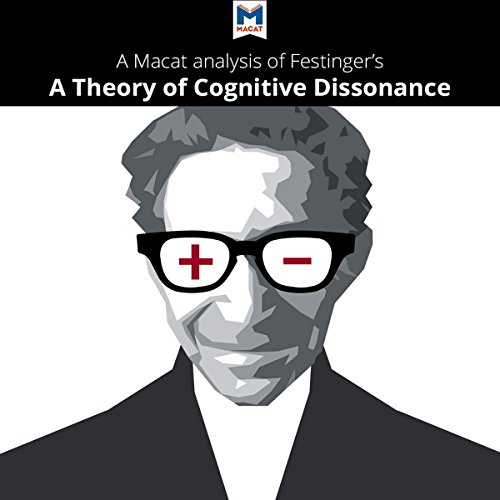Resultado de "Alexander J. O'Connor" em Todas as categorias
-
-
A Macat Analysis of Oliver Sacks's The Man Who Mistook His Wife for a Hat and Other Clinical Tales
- De: Dario Krpan, Alexander J. O'Connor
- Narrado por: Macat.com
- Duração: 1 hora e 42 minutos
- Íntegra
-
Geral0 out of 5 stars 0
-
Desempenho0 out of 5 stars 0
-
História0 out of 5 stars 0
Neurologist Oliver Sacks' 1985 book The Man Who Mistook His Wife for a Hat challenges the impersonal approach doctors took to patient care and paved the way for a new literary genre: popular science. At the time of its publication, neurologists and physicians relied mainly on clinical studies and their own expertise to set the course of treatment. Sacks found this inhumane and developed a very different approach, clearly demonstrated in The Man Who Mistook His Wife.
-
A Macat Analysis of Oliver Sacks's The Man Who Mistook His Wife for a Hat and Other Clinical Tales
- Narrado por: Macat.com
- Duração: 1 hora e 42 minutos
- Data de lançamento: 27/07/2016
- Idioma: Inglês
Falha ao colocar no Carrinho.
Tente novamente mais tardeFalha ao adicionar à Lista de Desejos.
Tente novamente mais tardeFalha ao remover da Lista de Desejos
Tente novamente mais tardeFalha ao adicionar à Biblioteca
Tente outra vezFalha ao seguir podcast
Tente outra vezFalha ao parar de seguir podcast
Tente outra vezPreço normal: R$ 17,99 -1 ou crédito
Preço com desconto: R$ 17,99 -1 ou crédito
-
-
-
An Analysis of Philip Zimbardo's The Lucifer Effect: Understanding How Good People Turn Evil
- De: Alexander J. O'Connor
- Narrado por: Macat.com
- Duração: 1 hora e 54 minutos
- Íntegra
-
Geral0 out of 5 stars 0
-
Desempenho0 out of 5 stars 0
-
História0 out of 5 stars 0
Born in 1933, Philip Zimbardo is a renowned and controversial American social psychologist who is fascinated by why people can sometimes behave in awful ways. Some psychologists believe people who commit cruelty are innately evil. Zimbardo disagrees. In his 2007 book, The Lucifer Effect, he argued that it is the power of situations around us that can cause otherwise good people to commit "evil", citing many historical examples to illustrate his point.
-
An Analysis of Philip Zimbardo's The Lucifer Effect: Understanding How Good People Turn Evil
- Narrado por: Macat.com
- Duração: 1 hora e 54 minutos
- Data de lançamento: 19/07/2016
- Idioma: Inglês
Falha ao colocar no Carrinho.
Tente novamente mais tardeFalha ao adicionar à Lista de Desejos.
Tente novamente mais tardeFalha ao remover da Lista de Desejos
Tente novamente mais tardeFalha ao adicionar à Biblioteca
Tente outra vezFalha ao seguir podcast
Tente outra vezFalha ao parar de seguir podcast
Tente outra vezPreço normal: R$ 17,99 -1 ou crédito
Preço com desconto: R$ 17,99 -1 ou crédito
-
-
-
A Macat Analysis of Leon Festinger's A Theory of Cognitive Dissonance
- De: Camille Morvan, Alexander J. O'Connor
- Narrado por: Macat.com
- Duração: 1 hora e 38 minutos
- Íntegra
-
Geral0 out of 5 stars 0
-
Desempenho0 out of 5 stars 0
-
História0 out of 5 stars 0
Why do we want to justify our decisions, even if they appear to be irrational? The answer lies in cognitive dissonance, the mental discomfort we experience when we hold two contradictory beliefs at the same time. In A Theory of Cognitive Dissonance, first published in 1957, American social psychologist Leon Festinger investigates the problem. Festinger puts forward the idea that we have developed mechanisms to try to deal with the stress brought on by cognitive dissonance.
-
A Macat Analysis of Leon Festinger's A Theory of Cognitive Dissonance
- Narrado por: Macat.com
- Duração: 1 hora e 38 minutos
- Data de lançamento: 30/06/2016
- Idioma: Inglês
Falha ao colocar no Carrinho.
Tente novamente mais tardeFalha ao adicionar à Lista de Desejos.
Tente novamente mais tardeFalha ao remover da Lista de Desejos
Tente novamente mais tardeFalha ao adicionar à Biblioteca
Tente outra vezFalha ao seguir podcast
Tente outra vezFalha ao parar de seguir podcast
Tente outra vezPreço normal: R$ 17,99 -1 ou crédito
Preço com desconto: R$ 17,99 -1 ou crédito
-
-
-
A Macat Analysis of Alan D. Baddeley and Graham Hitch's "Working Memory"
- De: Birgit Koopmann-Holm, Alexander J. O'Connor
- Narrado por: Macat.com
- Duração: 1 hora e 39 minutos
- Íntegra
-
Geral0 out of 5 stars 0
-
Desempenho0 out of 5 stars 0
-
História0 out of 5 stars 0
In the 1960s, researchers into human memory began to understand memory as operating under two systems. The first was a short-term system handling information for mere seconds. The second was a long-term system capable of managing information indefinitely. They also discovered, however, that short-term memory was not simply a filing cabinet, but was actively working on cognitive - or mental - tasks. This is how the phrase "working memory" developed.
-
A Macat Analysis of Alan D. Baddeley and Graham Hitch's "Working Memory"
- Narrado por: Macat.com
- Duração: 1 hora e 39 minutos
- Data de lançamento: 06/06/2016
- Idioma: Inglês
Falha ao colocar no Carrinho.
Tente novamente mais tardeFalha ao adicionar à Lista de Desejos.
Tente novamente mais tardeFalha ao remover da Lista de Desejos
Tente novamente mais tardeFalha ao adicionar à Biblioteca
Tente outra vezFalha ao seguir podcast
Tente outra vezFalha ao parar de seguir podcast
Tente outra vezPreço normal: R$ 17,99 -1 ou crédito
Preço com desconto: R$ 17,99 -1 ou crédito
-




